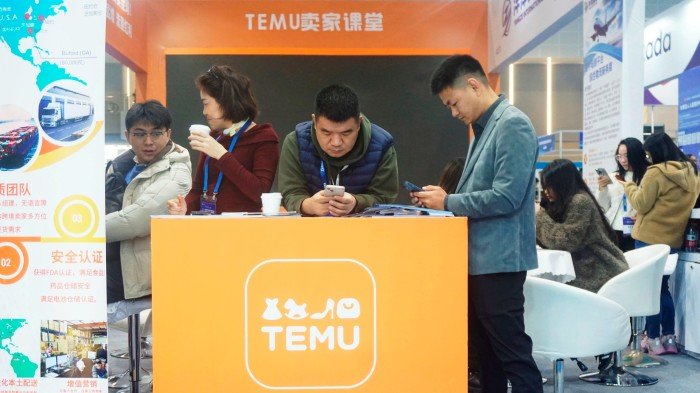Unlock the Editor’s Digest for free
Roula Khalaf, Editor of the FT, selects her favourite stories in this weekly newsletter.
China’s ecommerce suppliers are rethinking how they do business after US President Donald Trump said he would soon close a tax exemption that has proved a crucial lifeline to thousands of small-scale export businesses.
Trump announced the end of the so-called de minimis rule, which exempts shipments under $800 in value from tariffs and rigorous customs checks, in an executive order last month.
He later paused efforts to end the exemption for packages from China but the US still plans to halt de minimis as soon as “adequate systems” are in place to screen and tax the millions of packages that arrive in the country each day.
Trump on Thursday announced another 10 per cent tariff on Chinese goods, on top of 10 per cent tariffs that he imposed in February, to take effect from Monday.
The combined moves have forced Chinese sellers on cross-border ecommerce platforms — who had rapidly taken up the tariff-free form of trade in recent years — to expand production in the US, seek new customers in alternative markets or pass costs on to consumers.
“Tariffs . . . will definitely reduce sales and market share in the US,” said Yarong Wuliu, former deputy secretary-general of the cross-border ecommerce division of the Communist party-backed Chinese Association for Small and Medium-sized enterprises. “The ecommerce industry should be prepared.”
Many traders started selling small-value orders on or via online platforms after tariffs and trade restrictions initiated during Trump’s first presidency hit orders from traditional buyers in western markets.
Cross-border ecommerce ballooned more than 60 per cent in the four years to 2024, totalling Rmb2.63tn that year. In 2023, it accounted for almost 6 per cent of all of China’s goods trade, officials said last year.
Zhao Xiuxiu, a factory boss in Guangzhou’s textile-producing Baiyun district that supplies goods to sellers on platforms such as Shein for the past five years, said her business would focus on traditional, large shipment trade with her customers in Africa and the Middle East.
Sales had already halved in the second half of last year, around the time former president Joe Biden first proposed tightening de minimis rules.
“If there are tariffs, it’s definitely bad news,” she said. “Starting from last year it started to be hard, and this year it’s been no good either.”
Concerns about an overhaul of the de minimis rules pushed Casetify, a Hong Kong-based phone case maker that counts the US as its largest market, to build printing facilities in the US last year. “Casetify needs to move quickly, so it ships blank cases in bulk to the US first and then prints them there,” according to a person familiar with the matter.
“Production lines are not firing on all cylinders like they were a year earlier,” said Zhang Zhongbao, founder of Xingcheng Excellent Swimwear Consultancy, which helps Shein and rival platform Temu source swimwear suppliers. “Factories don’t dare stock up due to concerns over US tariffs.”
Chinese exporters are also expected to step up efforts to expand production in countries less likely to be targeted by Trump, logistics executives said.
Ecommerce merchants that “hitherto have been running big manufacturing [and] distribution facilities ex-China to the rest of the world [were] long before the tariff discussion” looking to boost production elsewhere, said John Pearson, chief executive of DHL Express, which helps Chinese businesses deliver their goods. Now they have “had some of those plans accelerated”.
Even with tariffs, many believe their goods would remain competitive and that they could simply pass any additional costs on to US consumers.
Huang, who prefers to go only by one name and sells home decor and holiday decorations on Temu, said he had only increased prices “slightly” following Trump’s executive order.
“For us individual sellers, a tariff only means a slight reduction in profit margins,” he added. “Consumers can afford it, and it hasn’t affected the orders.”
Prices of goods on Temu that the company sets itself increased 42 per cent after the executive order before falling when the move was put on pause days later, according to a Goldman Sachs survey.
Liu, another seller who asked to be identified by his surname, and who sells circuit boards to the US and other markets on platforms including Amazon and eBay, agreed that consumers would bear the brunt of cost increases, suggesting that sellers would one day itemise customs duties on bills separately.
“In the end, tariffs will definitely be passed on to consumers,” he said.
Additional reporting by Oliver Telling in London
